Daniel Castelo - The Marks of Scripture: Rethinking the Nature of the Bible
Here you can read online Daniel Castelo - The Marks of Scripture: Rethinking the Nature of the Bible full text of the book (entire story) in english for free. Download pdf and epub, get meaning, cover and reviews about this ebook. year: 2019, publisher: Baker Publishing Group, genre: Religion. Description of the work, (preface) as well as reviews are available. Best literature library LitArk.com created for fans of good reading and offers a wide selection of genres:
Romance novel
Science fiction
Adventure
Detective
Science
History
Home and family
Prose
Art
Politics
Computer
Non-fiction
Religion
Business
Children
Humor
Choose a favorite category and find really read worthwhile books. Enjoy immersion in the world of imagination, feel the emotions of the characters or learn something new for yourself, make an fascinating discovery.
- Book:The Marks of Scripture: Rethinking the Nature of the Bible
- Author:
- Publisher:Baker Publishing Group
- Genre:
- Year:2019
- Rating:5 / 5
- Favourites:Add to favourites
- Your mark:
- 100
- 1
- 2
- 3
- 4
- 5
The Marks of Scripture: Rethinking the Nature of the Bible: summary, description and annotation
We offer to read an annotation, description, summary or preface (depends on what the author of the book "The Marks of Scripture: Rethinking the Nature of the Bible" wrote himself). If you haven't found the necessary information about the book — write in the comments, we will try to find it.
The Marks of Scripture: Rethinking the Nature of the Bible — read online for free the complete book (whole text) full work
Below is the text of the book, divided by pages. System saving the place of the last page read, allows you to conveniently read the book "The Marks of Scripture: Rethinking the Nature of the Bible" online for free, without having to search again every time where you left off. Put a bookmark, and you can go to the page where you finished reading at any time.
Font size:
Interval:
Bookmark:
2019 by Daniel Castelo and Robert W. Wall
Published by Baker Academic
a division of Baker Publishing Group
PO Box 6287, Grand Rapids, MI 49516-6287
www.bakeracademic.com
Ebook edition created 2019
All rights reserved. No part of this publication may be reproduced, stored in a retrieval system, or transmitted in any form or by any meansfor example, electronic, photocopy, recordingwithout the prior written permission of the publisher. The only exception is brief quotations in printed reviews.
Library of Congress Cataloging-in-Publication Data is on file at the Library of Congress, Washington, DC.
ISBN 978-1-4934-1675-2
Unless otherwise indicated, Scripture quotations are from the New Revised Standard Version of the Bible, copyright 1989, by the Division of Christian Education of the National Council of the Churches of Christ in the United States of America. Used by permission. All rights reserved.
Scripture quotations labeled AT are the authors own translation.
Scripture quotations labeled KJV are from the King James Version of the Bible.
In memoriam
John Webster
(19552016)
Cover
Half Title Page
Title Page
Copyright Page
Dedication
Preface
1. The Ontology and Teleology of Scripture
2. Speaking of Scripture
3. Unity
4. Holiness
5. Catholicity
6. Apostolicity
7. The Churchs Practice of Scripture
Bibliography
Scripture and Ancient Writings Index
Subject Index
Back Cover
This book is the product of both a friendship and a shared passion. Our friendship has been forged over a decade at our institutional home, Seattle Pacific University and Seminary. During this time we have had many conversations about a host of things. We truly enjoy one anothers company. Our friendship is a gift from God that we cherish very much. We also share a number of passions. One of those shared passions is a deep love for Scripture. Our passion for and confidence in Scripture is grounded in a shared affirmation of its vast potential as a sanctifying auxiliary of Gods Spirit in transforming the churchs worship, instruction, mission, and devotional life in fresh and powerful ways. We practice Scripture because we have seen the Spirit use it to convict, shape, and change peoples lives into conformity to our Lord. We hope this passion is evident in the classroom when we teach our students, nonbelievers and believers alike, and also in our published work. We are intellectually hospitable to engage in conversations with any others over matters of common concern; however, we gladly come to that conference table with firm convictions about the Bibles authority and its continuing relevance for our day. We hope this book clarifies those convictions going forward.
This book is also a response to a shared concern about the nature of theological discourse and the curricula that instantiate it in many divinity schools. Simply put, theologians and biblical scholars have compartmentalized their investigations and conversations about the core beliefs and practices of the Christian faith they share. Scripture is taught and its meaning reconstructed within the ancient social worlds that come with particular texts. Bible faculty only rarely vest their study of these texts with the dogmatic insight of their theologian colleagues. Although this interaction has happily begun within the guilds of biblical scholarship (e.g., the Society of Biblical Literature, the Studiorum Novi Testamenti Societas, the Institute for Biblical Research), it has yet to trickle down to the seminary classroom, where courses in theological interpretation are still uncommon, and team-taught courses of theologians and biblical scholars even less so. We find the same is true of professional theologians whose instruction on the churchs theological goods is often more fluent in contemporary sociological or anthropological models than in biblical studies. We hope, then, this book will be read not so much as an indictment of the Christ-Scripture or incarnational analogy but principally as an example of the kind of discourse we long for in theological education today: a theologian and a biblical scholar engaged in a mutually glossing conversation over a common theme by utilizing methods and contributions from each discipline to construct a whole greater than the sum of its two parts.
As for those in our classrooms, we often present ourselves as teachers and doctors of and for the church, but sometimes even our Christian students are not as passionate as we are about Scripture. Many hold it in high regard but confess their trust as a routine shibboleth or theological abstraction; they do not know how to talk about the importance they willingly grant Scripture. Ironically, they have learned from others how to affirm their Bible beliefs but not how to articulate why they trust Scripture without budge or blush. Others are dismayed by the way some Christians deny or shortchange what is plainly in the text so as to conform Scripture to fit some predetermined understanding. We find that the primary reason for this situation is a lack of imagination in how congregations teach their membership, including our Christian students, how to think and talk about the Scripture they affirm as a revelatory word. We hope our book sparks an imaginative conversation for our students and their teachers about a new way to envision Scriptures nature and enduring authority.
In terms of audience, we seek a broad readership that reflects the whole church. We are both faculty members and so naturally had students and their teachers in mind when we wrote this book. Even though not technically academic, it is scholarly enough for use in the academy. Put another way, we did not necessarily write this text for other scholars: the work is not heavily footnoted, and specific details or alternatives were sometimes not pursued for the sake of brevity. We wrote intuitively and experimentallyoff the cuff, if you willso as not to overburden the text with documentation and to preserve some of the energy and vitality with which we come to writing this particular book. There are some loose ends here and there, we know. And yet, we are inclined to author pieces this way occasionally (in addition to our more technical writings) for the sake of the church. Our shared conviction that we are doctors of and for the church sometimes puts us at odds with the academy and sometimes puts us at odds with the church. We believe that the wide chasm between these two constituencies is all too often an intellectual and formational mistake. This work is an extension of our desire to see that gap bridged.
One final note to clarify terminology and style: We take a broad approach to our use of the church. We are not bound to use this term along rigid, confessional lines. We are Methodists with Pentecostal roots. We are inclined to join Irenaeus and say that where the church is, there is the Spirit of God, and vice versa ( Against Heresies 3.24.1). And, we would add, the Spirit of God is evident where people are attentive to the word of God and seek to form loving relationships with God and neighbor. When speaking of Scripture we have in mind the two-Testament canon of sacred texts that a faithful people affirm as authoritative and so practice in their worship, instruction, mission, and personal devotions for holy ends. As for the style of this book, we wanted to preserve our distinct voices amid our shared convictions. Therefore, in the chapters devoted to the marks, we begin and conclude with general remarks, but within the chapters themselves are sections distinctly authored by each of us. As for the other chapters, we attempted to maintain a unity of style and thus revised them extensively. Throughout, we liberally use plural first-person pronouns, a demonstration of the extent of our shared visions.
Font size:
Interval:
Bookmark:
Similar books «The Marks of Scripture: Rethinking the Nature of the Bible»
Look at similar books to The Marks of Scripture: Rethinking the Nature of the Bible. We have selected literature similar in name and meaning in the hope of providing readers with more options to find new, interesting, not yet read works.
Discussion, reviews of the book The Marks of Scripture: Rethinking the Nature of the Bible and just readers' own opinions. Leave your comments, write what you think about the work, its meaning or the main characters. Specify what exactly you liked and what you didn't like, and why you think so.

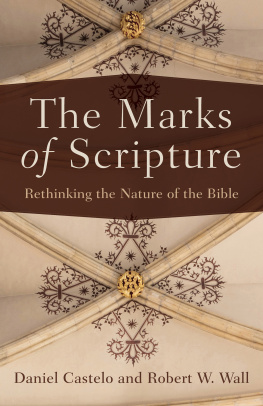
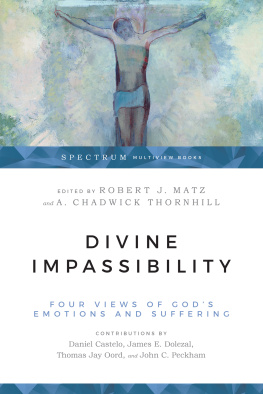
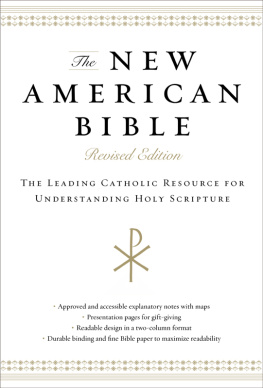
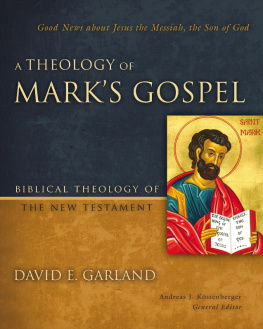
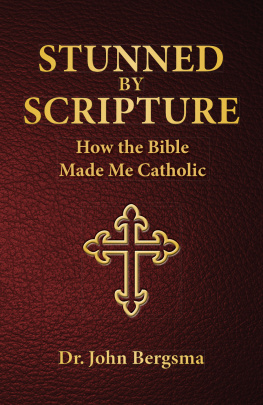


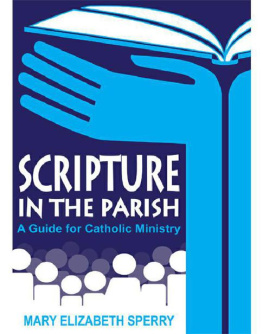
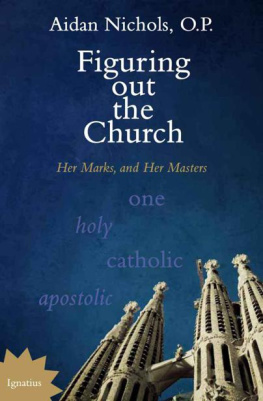
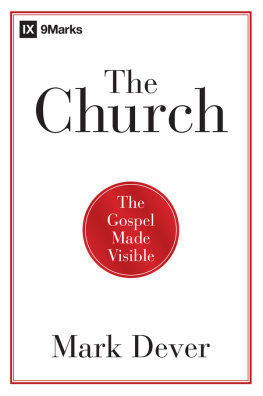
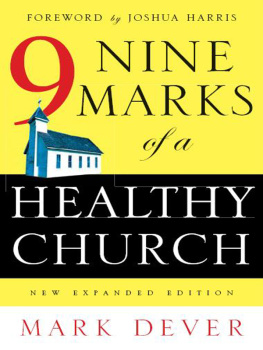
![Scott Hahn [Inconnu(e)] - Scripture Matters: Essays on Reading the Bible From the Heart of the Church](/uploads/posts/book/134760/thumbs/scott-hahn-inconnu-e-scripture-matters-essays.jpg)
![Scott Hahn [Inconnu(e)] - A Pocket Guide to the Bible](/uploads/posts/book/134750/thumbs/scott-hahn-inconnu-e-a-pocket-guide-to-the.jpg)
